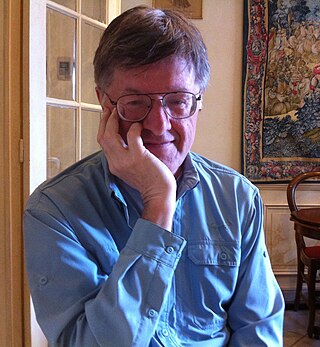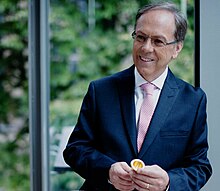
A musical ensemble, also known as a music group or musical group, is a group of people who perform instrumental and/or vocal music, with the ensemble typically known by a distinct name. Some music ensembles consist solely of instrumentalists, such as the jazz quartet or the orchestra. Other music ensembles consist solely of singers, such as choirs and doo-wop groups. In both popular music and classical music, there are ensembles in which both instrumentalists and singers perform, such as the rock band or the Baroque chamber group for basso continuo and one or more singers. In classical music, trios or quartets either blend the sounds of musical instrument families or group instruments from the same instrument family, such as string ensembles or wind ensembles. Some ensembles blend the sounds of a variety of instrument families, such as the orchestra, which uses a string section, brass instruments, woodwinds, and percussion instruments, or the concert band, which uses brass, woodwinds, and percussion. In jazz ensembles or combos, the instruments typically include wind instruments, one or two chordal "comping" instruments, a bass instrument, and a drummer or percussionist. Jazz ensembles may be solely instrumental, or they may consist of a group of instruments accompanying one or more singers. In rock and pop ensembles, usually called rock bands or pop bands, there are usually guitars and keyboards, one or more singers, and a rhythm section made up of a bass guitar and drum kit.

The Canadian Brass is a Canadian brass quintet formed in 1970 in Toronto, Ontario, by Charles Daellenbach (tuba) and Gene Watts (trombone), with horn player Graeme Page and trumpeters Stuart Laughton and Bill Phillips completing the quintet. As of August 2023, Daellenbach is the sole original member in the group, with the other members being trumpeters Joe Burgstaller and Mikio Sasaki, hornist Jeff Nelsen, and trombonist Keith Dyrda.
A quintet is a group containing five members. It is commonly associated with musical groups, such as a string quintet, or a group of five singers, but can be applied to any situation where five similar or related objects are considered a single unit.

A brass quintet is a five-piece musical ensemble composed of brass instruments. The instrumentation for a brass quintet typically includes two trumpets or cornets, one French horn, one trombone or euphonium/baritone horn, and one tuba or bass trombone. Musicians in a brass quintet may often play multiple instruments. Trumpet players for instance may double on piccolo trumpets and flugelhorns. There can be variation in instrumentation depending on the type of quintet. In some quintets, the horn is replaced by an additional trombone. Euphonium may also be substituted for the trombone part. While the tuba is considered a standard, the range and style of many pieces lend themselves to being played with bass trombone as the lowest-pitched instrument. Additionally, some pieces call for the use of percussion instruments, particularly the snare drum, tambourine, or timpani.
Arnold Maurice Jacobs was an American tubist who spent most of his career with the Chicago Symphony Orchestra. He held that position from 1944 until his retirement in 1988.
The Eastman Wind Ensemble was founded by conductor Frederick Fennell at the Eastman School of Music in 1952. The ensemble is often credited with helping redefine the performance of wind band music. Considered one of America's leading wind ensembles, its core personnel of 50 players consists of undergraduate and graduate students at the Eastman School of Music.
Jay Krush is a native of the Philadelphia area whose busy career includes performing, composing, arranging, teaching and conducting.
The American Brass Quintet is an American brass quintet founded in 1960. Unlike conventional brass quintets, the bass voice is provided by a bass trombone rather than a tuba. The Quintet has served as Ensemble-in-Residence at the Aspen Music Festival and School since 1970 and at the Juilliard School since 1987.
Velvet Brown is an American tubist and euphonium player. She is currently a Distinguished Professor of Music at Pennsylvania State University, prior to which she taught at Bowling Green State University and Ball State University.
The Meridian Arts Ensemble is an American chamber music ensemble based in New York City, specializing in the performance of new works for brass and percussion.
Mark Davis Scatterday is an American conductor best known for his association with the Eastman School of Music, at which he is currently serving as conductor of the Eastman Wind Ensemble.
David Jason Snow is an American composer. Snow studied composition with Samuel Adler, Warren Benson, and Joseph Schwantner at the Eastman School of Music, Jacob Druckman at the Yale School of Music, and Arthur Berger and Martin Boykan at Brandeis University. At the Eastman School, Snow was awarded the Sernoffsky, McCurdy, and Howard Hanson prizes in composition; Yale awarded him a Bradley-Keeler Memorial Scholarship and the Frances E. Osborne Kellogg Prize in composition. Snow has been the recipient of awards, fellowships, residencies and commissions from BMI, the National Association of Composers/USA, the National Federation of Music Clubs, the Annapolis Fine Arts Foundation, the ASCAP Foundation, the College Band Directors Association, the National Endowment for the Arts, Res Musica Baltimore, the Maryland State Arts Council, the Renée B. Fisher Foundation, Trio Indiana, SoundMoves, Pastiche, the Arts Council of Montgomery County (Maryland), Yaddo, and the Millay Colony for the Arts.
Eugene "Gene" Watts is an American-Canadian trombonist and a founding member of the Canadian Brass, a brass quintet based in Canada.
Gary Alan Kulesha is a Canadian composer, pianist, conductor, and educator. Since 1995, he has been Composer Advisor to the Toronto Symphony Orchestra. He has been Composer-in-Residence with the Kitchener-Waterloo Symphony (1988–1992) and the Canadian Opera Company (1993–1995). He was awarded the National Arts Centre Orchestra Composer Award in 2002.
Along with a concerted effort to commission new works for brass quintet since 1967 the bulk of any brass quintet's repertoire consists of arrangements of pre-existing music. Victor Ewald's four brass quintets are the first serious attempts at establishing a repertoire for the ensemble, though they do not stand up to typical string quartet repertoire of the same and preceding eras. The Chicago and New York Brass Quintets made sustained efforts to commission new works, and much of the original repertoire for brass quintet from the mid-20th century derives from their groundbreaking work. In the 1960s the mantle of creating a repertoire for brass quintet was taken up by the American Brass Quintet and the New York Brass Quintet, with both groups essentially establishing the brass quintet as a part of the chamber music field. Notably, only two brass quintets have ever been awarded the Walter W. Naumburg Chamber Music Award, considered by many to be the highest achievement in brass chamber music: The Empire Brass Quintet in 1976 and The Saturday Brass Quintet in 1990. But it was Canadian Brass that developed the pragmatic approach to repertoire allowed the ensemble to reach a wider audience. They developed a two prong approach to performance, developing a masterpiece approach to repertoire that popularized the brass quintet as an ensemble into what was essentially a "pops" ensemble. Meanwhile, the ensemble has been pursuing an aggressive 45-year commissioning schedule. Though this ensemble is seldom recognized for its achievement in the contemporary sphere, they have created well over 100 newly composed works for brass quintet, though few of the Canadian Brass commissions of original compositions have taken hold in the repertoire of other brass quintets.
Summit Records, Inc. is an internationally distributed record label that evolved out of the large brass ensemble Summit Brass in the late 1980s. It was established by David Hickman and Ralph Sauer.
Greg Danner is a contemporary American composer, educator, and professional musician. He is currently the composer-in-residence and professor at Tennessee Tech in Cookeville, Tennessee. He is the 2010 Composer's Guild Grand Prize winner.
James Scott Irvine is a Canadian composer, arranger, and tuba player based in Owen Sound, Ontario. An associate of the Canadian Music Centre and a member of the Canadian League of Composers, he has been commissioned to compose works by the Canadian Broadcasting Corporation, the Laidlaw Foundation, and the Ontario Arts Council. His works have been recorded on a number of commercial releases, including CDs by Joan Watson, Jack Grunsky, the Canadian Chamber Ensemble, and the Berlin Philharmonic. Most of his compositions are written for concert band and brass instruments.

Raymond Luedeke is an American / Canadian composer of contemporary classical music. Praised for his idiosyncratic instrumental writing and for his orchestration, Luedeke has more recently concentrated on works for music theatre. Although born in New York City, he spent 29 years as Associate Principal Clarinet with the Toronto Symphony Orchestra, a position he left in 2010. A dual citizen of the United States and Canada, Ray Luedeke is artistic director of Voice Afire Opera-Cabaret in New York City.




